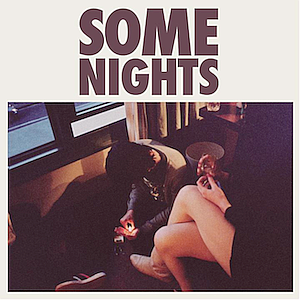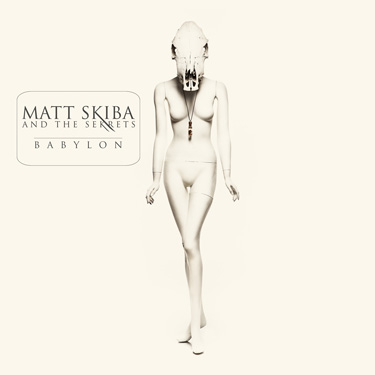 After a great deal of re-listening and reflection, I can definitively say THESE are the albums in 2010 that caught my ears, piqued my interest, and took up space on both my iPod and computer. For a complete list of music releases this year, go here.
After a great deal of re-listening and reflection, I can definitively say THESE are the albums in 2010 that caught my ears, piqued my interest, and took up space on both my iPod and computer. For a complete list of music releases this year, go here.
And now, without further adieu…
 Best Release of 2010: Beat The Devil's Tattoo by Black Rebel Motorcycle Club (*****)
Best Release of 2010: Beat The Devil's Tattoo by Black Rebel Motorcycle Club (*****)
Rock music used to be dangerous. Forget about political agendas or course language, the sounds themselves used to explore the darkest recesses of our psyches. It was the Devil’s music, and bands worked their hardest to conjure up that sense of dread. Black Rebel Motorcycle Club (BRMC) remembers what that tradition meant to rock music and they bring that aesthetic into the 21st century with Beat The Devil’s Tattoo. Wrapped in grimy leads, propulsive drumming, and oozing bass work, Beat The Devil’s Tattoo marries over-sexed biker cool with occult tinged parables to create the most urgent record this year. Whether it’s the shambling title track, the fuzzed out lurch of “War Machine,” or the gravestone bounce of “River Styx,” BRMC take it upon themselves to remind listeners how seductive a raw record can be. It’s messy, violent, and at times, noisy, the type of record that pulls you in before exposing its fangs. Vocalists Robert Been (Bass) and Peter Hayes (Guitar) take turns from their brimstone pulpit, but what really makes Beat The Devil’s Tattoo stand out is its recklessness. Punchy drumming from Leah Shapiro adds a powerful presence to the group’s sound, her boxy fills adding grit to the record’s most demonic riffs. That kind of kinetic tension really comes to the forefront on tracks like the wobbly “Bad Blood” or the galloping “Mama Taught Me Better.” In the end, BRMC reminds everyone in the digital age that great music grabs you because of its attitude, its conviction, and above all, its sense of danger. Key Cuts- Beat The Devil's Tattoo, War Machine, River Styx
 Best Debut: Varuna by The Republic Of Wolves (****)
Best Debut: Varuna by The Republic Of Wolves (****)
Though they dropped an E.P. earlier this year, The Republic Of Wolves really made their 2010 musical splash with Varuna, a 13-track journey through the existential forest. Focusing on layered, hazy sounding rock, the band created an earthy album with weighty themes. “Oarsman’s” anthemic, twisting guitars push the band’s massive sound towards the stratosphere, while the finger-picked folk of “Pitch & Resin” showcases the group’s refined sense of restraint. While many new bands clamored for attention in 2010, they did so with collections of strong singles. Varuna, on the other hand, is a connected song cycle. The Republic Of Wolves explores guilt (“Sea Smoke”), revenge (“Greek Fire”), and resignation (“Grounded, I Am Traveling Light”) with a sense of maturity rather than cynicism, arriving at sense of tranquility and forgiveness by the record’s end. While it’s easy to draw comparisons to later period Brand New and Flesh E.P. era Robbers with Varuna, The Republic Of Wolves don’t knick riffs from their influences. Instead, they take the time to carefully craft tone and texture, creating their own engrossing legacy in the process. Key Cuts- Oarsman, Pitch & Resin, Grounded, I Am Traveling Light
 Best Rock Release: Invented by Jimmy Eat World (*****)
Best Rock Release: Invented by Jimmy Eat World (*****)
In a strange way, Jimmy Eat World will never be as big as they were when Bleed American came out. Chalk it up to the fact that the group never wrote another monster smash like “The Middle.” Yet in some ways it’s almost better that they aren’t on that level anymore. Straddling the line the between mainstream and nostalgic favorite, Jimmy Eat World have continued to stretch in sound, largely without scrutiny, and with just as much consistency between their albums. Invented continues this trend, a record that adds small embellishments to an otherwise driving and dependable sound. There are overdriven, stadium-sized choruses (“Evidence”), flange soaked ballads (“Stop”), and super-charged rockers (“Coffee & Cigarettes”), but the album’s real strength is in its storytelling. Singer Jim Adkins is able to crystallize some of life’s most intimate moments with his prose, and the results are arresting. Songs like “Cut” wrestle with what it means to sacrifice while “Invented” finds solace in love’s fleeting fancy. Through it all, the band stays focused, augmenting their arrangements with rich strings and soft keyboards. In an era of excess, it’s rare to find a rock band that holds all their instruments in such perfect balance, everything working to add vibrancy and color to memorable melodies. Invented might not be the flashiest, or the biggest record to come out this year, but its gracefulness is one that will keep Jimmy Eat World fans happy for years to come. Key Cuts- Evidence, Cut, Invented
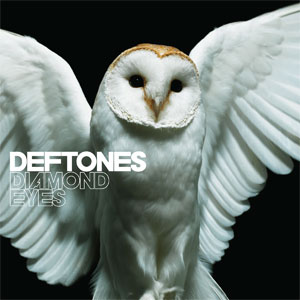 Best Metal Release: Diamond Eyes by Deftones (****)
Best Metal Release: Diamond Eyes by Deftones (****)
Good metal records do more that just bring speed and heaviness; they bring atmosphere. This has always separated the Deftones’ output from their contemporaries, and they continue to show them up on their latest offering, Diamond Eyes. After a horrific car accident put bassist Chi Cheng in a coma, the Deftones scrapped an entire album create this dark, textured dreamscape. Surprisingly, while Cheng’s cloud of tragedy hovers over Diamond Eyes, it doesn’t bog it down. Instead, the Deftones take this opportunity to craft an album largely about power, transcendence, and eroticism, all in an effort towards musical therapy about their fallen brother. The band hits on all the sounds they’ve explored throughout their career (the relentless chug of “Rocket Skates,” the Cure-like ambience on “Beauty School”) but the overall product seems more urgent than the aimless experimentation of 2006’s Saturday Night Wrist. Here, the album’s title track opens up with sledgehammer guitars and punishing drums, while the crawling crunch and spacious keyboards of “You’ve Seen The Butcher” round out singer Chino Moreno’s unsettling psychosis. It’s a record that shows how life galvanizes art, one that finds the Deftones pushing themselves towards the places they fear the most, letting it color their sound. Key Cuts- Diamond Eyes, You've Seen The Butcher, Beauty School
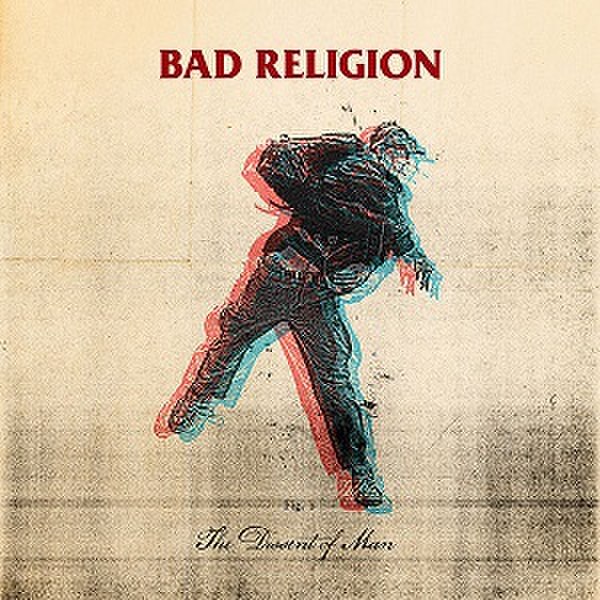 Best Punk Release: The Dissent Of Man by Bad Religion (****)
Best Punk Release: The Dissent Of Man by Bad Religion (****)
For a group of punk rockers approaching 50, Bad Religion simply refuses to slow down. Fresh off their 30-year anniversary, punk’s elder statesmen have released The Dissent Of Man, a biting 15 track record that recalls the Americana tones explored on 1993’s Recipe For Hate. “Only Rain” sports zig-zagging melodies and stadium-sized backing vocals while “Cyanide” features syrupy leads against mid-tempo fuzz. Though it doesn’t sacrifice energy (Brooks Wackerman gives a manic performance behind the drum kit), The Dissent Of Man comes across decidedly more melodic than 2007’s punishing New Maps Of Hell. Additionally, the songwriting team of Greg Graffin and Brett Gurewitz still seems focused on enlightenment rather than aggression, a quality that’s always been present in Bad Religion’s output. While most anarchist punk bands eventually come across as dated, Graffin and Gurewitz continue to extend their longevity by touching on very human themes. Whether it’s in the search of a place to call home (“Avalon”) or the struggles of faith (“Someone To Believe”), it’s clear that Bad Religion’s expansive vocabulary and their ability to touch on universal struggles keeps their ideas relevant and fresh. It’s also worth mentioning that for a band that’s been around since 1979, Greg Graffin’s vocals have never felt more passionate and pitch-perfect than on The Dissent Of Man. His expressive range on the blistering “The Day That The Earth Stalled” reiterates that Bad Religion has lots of gas left in the tank, carrying on the musical tradition they helped craft in the 80s. Key Cuts- Only Rain, The Resist Stance, Someone To Believe
 Best Electronic Release: Heligoland by Massive Attack (****)
Best Electronic Release: Heligoland by Massive Attack (****)
Though there are records that feel more like traditional electronic albums than this one, Massive Attack’s Heligoland was a real bright spot for the genre in 2010. In an era where music is constructed rather than played, it’s refreshing to see 90s trip-hop pioneers Robert Del Naja and Daddy G return with a lush and experimental album after a seven year hiatus. By and large, Heligoland is an exercise in deconstruction, of finding balance between the synthetic and organic while maintaining the electronic moniker. As a result, the record twists and turns, pulsing with tension but never exploding in discordant glitch pop. Phantasmal keyboards sneak and swell on “Splitting The Atom,” while “Flat Of The Blade” is spackled with sequenced cymbals. Like 1998’s landmark Mezzanine, Del Naja and Daddy G enlist some incredible vocal talents to sing over their brooding soundscapes, like the darkly seductive Hope Sandoval on “Paradise Circus,” and the expansive Horace Andy on “Girl I Love You.” But the album’s true gem is the 7 plus minute closer, “Atlas Air,” a track seeped in dirty bass and ghost-like synthesizers. In Heligoland’s final, obsidian soaked moments, it’s clear what Massive Attack have that their electronic peers lack: A sense of song craft to marry alongside with their exemplary production skills. Key Cuts- Splitting The Atom, Paradise Circus, Atlas Air
 Best Produced Release: My Beautiful Dark Twisted Fantasy by Kanye West (****½)
Best Produced Release: My Beautiful Dark Twisted Fantasy by Kanye West (****½)
While Kanye West loves to run his mouth at the most in-opportune times, he backs it all up when his head is on the chopping block. My Beautiful Dark Twisted Fantasy is an album that could have only comes from West’s bloated ego, an eclectic, sometimes nightmarish, and often-staggering work of art. From the Sleepy Hollow strings of “Dark Fantasy” to the murky, bubbling bounce of “Monster,” West sets out to redefine the genre he loves without any sense of restraint. There is no album out there that currently sounds like Fantasy, its genre-bending aesthetic reaffirming the post-modern experimentation that made hip-hop so exciting during its inception. West crafts these arrangements with a maestro’s touch, combining everything from old school soul, to space rock atmospheres, and symphonic pomp. Songs like the military punch “Power” or the thick, impending “Gorgeous” create a sense of diversity that’s unparalleled in mainstream hip-hop, giving Fantasy an almost cinematic quality. “Lost In The World” acts as the disc’s thrilling apex, a synthesis of Justin Vernon’s auto-tuned croon, massive tribal drums, and immersive piano. Book ended by Gil Scott Heron’s “Comment No. 1,” “Lost In The World” provides the means for Fantasy’s sonic and thematic dénouement, effectively closing out West’s harrowing odyssey. While his eccentricities and character inconsistencies provide engaging lyrical musings (And end up choking his detractors with a fleet of fish sticks), it’s all secondary to the sonic achievement here. West’s Fantasy isn’t just a milestone for 2010 music; it’s a benchmark in hip-hop’s legacy. Key Cuts- Dark Fantasy, Power, Monster (Feat. Jay-Z, Rick Ross, Nicki Minaj & Bon Iver)
 Best Comeback Release: Hurley by Weezer (****)
Best Comeback Release: Hurley by Weezer (****)
Seven albums into their career, Weezer have done the impossible. They’ve released an album that HASN'T upset 90% of their fan base. Of course this doesn’t mean they’ve lost their trademark sense of humor; Hurley still carries that around in spades, but with a more raucous and vivacious sound than Weezer’s most recent output. For a band that was so hit-or-miss on 2009’s Raditude, it’s refreshing to see Rivers Cuomo revisit his fuzzy, unhinged beginnings. “Ruling Me” sounds like it could have fit on Weezer’s debut with its chunky guitars, explosive build up, and 50s inspired chorus. Elsewhere, the grungy, bass heavy “Where’s My Sex?” recalls Cuomo’s love of 80s metal, while injecting some light-hearted fun about baby-makin’ (or is it socks?). Though most have compared Hurley to 1996’s Pinkerton, the album is far more immediate and has quite a few studio embellishments. The fluttering flute-tinged folk of “Unspoken” and the blasting drum machine on “Smart Girls” finds Weezer continuing to tweak their tried-and-true take on power-pop while keeping their sense of narrative building alive. Lyrically, Cuomo seems to be preoccupied with the passage of time, whether it’s over the stadium crunch of “Trainwrecks” or the thumping album closer “Time Flies.” Though it’s not as soul exposing as Pinkerton, Hurley sports lines like “Playing hacky-sack back when Audioslave/Was still Rage…” capturing a moment in time rather than forcing the band to chase trends. All in all, Hurley shows that Weezer are capable of churning out a consistent set of songs with life and effervescence, rather than burying themselves in a sterile, pop-radio inspired sarcophagus. Key Cuts- Ruling Me, Unspoken, Where's My Sex?
 Best E.P.: How To Destroy Angels E.P. by How To Destroy Angels (***½)
Best E.P.: How To Destroy Angels E.P. by How To Destroy Angels (***½)
The Internet collectively freaked out when Trent Reznor got married. Nine Inch Nails fans panicked that their once tortured idol would suddenly be stripped of his passion, settling down like most married rock stars do. How To Destroy Angels, a project consisting of his new wife Mariqueen Maading and Atticus Ross, shows a changed man, but certainly not a happier one. Rather than acting like Yoko Ono to Reznor’s musical mojo, Maading offers up her morose, siren-like vocals over some of Reznor’s most seething beats. What results is sexy, glitchy 6 song E.P. focused on power and hopelessness, one that finds Reznor doing something new for the first time in his life: Collaborating. “The Space In Between” climbs with white noise tension and scattered break beats while “A Drowning” is awash with descending piano and cold electronics. Sonically, Reznor covers much of the same ground like on “Ghosts I-IV,” except with a less expansive twist and a more disciplined focus. Ultimately, How To Destroy Angels comes across as a subdued Nine Inch Nails side project, but it affirms that Reznor is still bent on creating emotive music even if he’s a married man. Key Cuts- The Space In Between, Parasite, A Drowning
 Most Ambitious: The Suburbs by Arcade Fire (***½)
Most Ambitious: The Suburbs by Arcade Fire (***½)
Few bands currently make sweeping concept albums about how modern suburbia is a vessel for apathetic conformity. Arcade Fire is easily the best within that handful and The Suburbs is a strong testament to that. With each thick bass line, wistful guitar bend, and clattering fill, Win Butler leads his band into exploring the culture of emptiness that surrounds modern living. Whether it’s jumpy piano of the album’s title track, or the pulsing synthesizers on “Sprawl II (Mountains Beyond Mountains),” fans can hear the Arcade Fire toil tirelessly to deliver their cautionary sermon. Though it bogs down in the middle, and comes across too vague to function as a call to arms, The Suburbs has some profound revelations tucked inside its foggy mix. “Modern Man” finds Butler lamenting about squandered potential, “In my dream I was almost there/But you pulled me aside and said you're going nowhere/I know we are the chosen few/But we're wasted…” questioning how his dreams and hopes could ever steer him wrong. Elsewhere, the band tackles the weighty ennui of nostalgia (“Empty Rooms”) and life’s eventual decay (“Deep Blue”) through dense, layered arrangements. Still, the disc is heavy on mid-tempo numbers, and this ultimately makes The Suburbs feel less vital than the group’s last album, Neon Bible. Yet even with their shortcomings, Arcade Fire had some big things to say with The Suburbs, and it’s refreshing to see a group stick by their thematic convictions even if the product wasn’t perfect. Key Cuts- The Suburbs, Deep Blue, Sprawl II (Mountains Beyond Mountains)
 Most Experimental: Treats by Sleigh Bells (***½)
Most Experimental: Treats by Sleigh Bells (***½)
Every once in a while, a musical group comes along and subverts certain genre standards in the most unexpected ways. On paper, Derek Millar’s abrasive, blown-speaker production should not gel with Alexis Krauss’ breathy, bubblegum vocals. Yet Treats makes it seem like the duo was made for each other. Sleigh Bells’ debut album is a gleeful train wreck of fluttering beats, laser-guided keyboards, and sleazy metal riffs, an infectious blend of pop dissonance. Regardless if it's dream crunk, noise pop, or any other clever classification, you won’t confuse Sleigh Bells with anyone else. “Tell ‘Em” is a sadistic mash up of jackhammer distortion and cheer leader pep, while the reverb drenched waves of “Rill Rill” display the group’s ability to craft an honest to goodness ballad, sampling Funkadelic's "Can You Get To That?" in the process. Contemporary bands smash unlike sounds together all the time, especially in the Internet age, but rarely is it this realized, this electrifying. The white noise stomp of “Infinity Guitars” and the ascending keyboards of “Rachel” also display some available avenues for the duo to explore, granting validity to their disjointed experiments. While not all the jagged sounds come together seamlessly, Treats’ big strength is its immediacy. Millar and Krauss don't make concessions on Treats, their sonic punch acting like a love-it or leave it affair. Whether or not they gain your support, Sleigh Bells have found a sound all their own and it’ll be interesting to see how they tinker with it on their follow up. Key Cuts- Tell 'Em, Rill Rill, Treats
 Most Eclectic: Danger Days: The True Lives Of The Fabulous Killjoys by My Chemical Romance (****½)
Most Eclectic: Danger Days: The True Lives Of The Fabulous Killjoys by My Chemical Romance (****½)
It takes guts to abandon an entire album of material. It takes even more guts to describe your album as technicolor when you’re well known for all black uniforms. Yet My Chemical Romance took both those risks on their fourth album, Danger Days: The True Lives Of The Fabulous Killjoys, and it was a gamble that paid off. Danger Days is a fresh burst of adrenaline, fueled by muscle car riffs, delicate piano, and robotic synthesizers, all wrapped up in a post-apocalyptic concept about laser-toting renegades. It’s a lot to take in; a lesser band could have made a quick mess out of all these components but MCR handle it masterfully. While The Black Parade found the group laboriously erecting a solemn monument, Danger Days basks in high-octane emotion. “Bulletproof Heart” chugs along with motor-oil riffs and expansive keyboards, while the glitzed-out dance beats of “Planetary (GO!)” and power-pop psychedelics of “S/C/A/R/E/C/R/O/W” show just how far MCR want to push their sound. Ultimately, what ties it together is Gerard Way’s astute observations about personal libration and the acceptance of change. The mid album highlight “Party Poison” is a thick, bottom heavy rager that exudes this ethos best, “'Cause all the good times/They give you cancer/If we were all like you in the end/Oh, we'd be killin' ourselves by sleepin' in…” With an album this diverse, it’s clear that My Chemical Romance lost a lot of sleep to take on the world with this pulpy, futuristic atom bomb. Key Cuts- Bulletproof Heart, Party Poison, S/C/A/R/E/C/R/O/W
 Most Critically Praised: High Violet by The National (****½)
Most Critically Praised: High Violet by The National (****½)
The National were poised to become something of a household name. They were indie darlings who opened for U2, always commended for who they were associated with while Matt Berninger’s resonating baritone came across as a new wrinkle to the post-punk revival. With High Violet, it almost seems like they were trying to come into their own, to make fans and critics accept them for the own merits rather than the trappings that surrounded them. Songs like the haunting, piano tipped “Sorrow” display a band at the peak of their talents, able to conjure immense walls of sound while retaining a soft sense of intimacy. Throughout the album's run time, The National colors their musical space with frantic distortion, somber horns, and precise drumming, creating a richly detailed world to suit Berninger’s mournful observations. High Violet’s percussive single “Bloodbuzz Oho” spread across music publications and late night shows like wildfire, displaying a band with more musical depth and diversity than their 2010 post-punk contemporaries. Yet the icing on the cake is Berninger, who seems to be caught between middle class sedation and watching it crumble around him. On “Little Faith,” Berninger’s dark velvet voice drops lines like, “Don't be bitter, Anna/I know how you think/You're waiting for Radio City to sink…” offering reassurance when it comes to the erosion creeps into our lives. In the end, The National created an important record, an album that stresses the need for us to connect to someone or something outside of our 9-to-5s. It’s no surprise, then, why so many critics connected to High Violet in the way that they did. Key Cuts- Sorrow, Bloodbuzz Ohio, Conversation 16
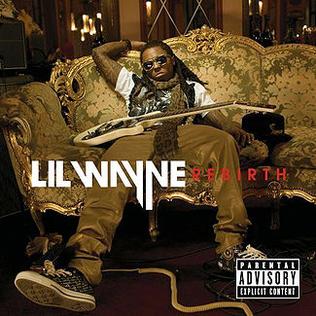 Most Critically Crapped On: Rebirth by Lil Wayne (*)
Most Critically Crapped On: Rebirth by Lil Wayne (*)
Who knows what Lil Wayne was thinking when he decided to write and record Rebirth. It’s possible that he believed he was as talented as Prince, to smash rock and rap together into something far removed from nu metal. Maybe he thought he was a lost Beastie Boy. Unfortunately, it’s probable that he inadvertently created the year’s best comedy album, one whose delays and eventual leak didn’t hurt as much as its actual content. Rebirth is, quite simply, a mess. It’s a tidal wave of lazy auto tune, adolescent guitar noodling, and bad rapping, packaged as some sort of high-art statement from Young Money. While Wayne has proven himself to be pop dynamite when it comes to writing hooks, Rebirth is virtually devoid of them. The bravado that he typically brings to his mixtapes and rap albums is gone, replaced by an “introspective” version of himself that feels forced and out of place. Adding insult to injury is how compressed the record sounds, a combination of thin bass work, muted drums, and studio sheen that makes the whole thing feel flat. Luckily, the critics smelled this one coming a mile away, even if they’re willing to give Eminem props for his aggressive guest spot on “Drop The World.” While it might be polite to commend Lil Wayne in stretching his sound, doing so might encourage him to create another album like Rebirth. Best to keep all compliments to ourselves on this one. Key Cuts- Remember Three Dollar Bill Ya'll?
 Biggest Surprise: Brothers by The Black Keys (****)
Biggest Surprise: Brothers by The Black Keys (****)It’s not so much a surprise that The Black Keys exploded in popularity with
Brothers, it’s in how they did it. 2008’s
Attack & Release found Dan Auerbach (Guitar) and Patrick Carney (Drums) flirting with subtle production techniques, moving further away from their stripped down, dirty blues aesthetic. What resulted was a record that had really interesting ideas but one mired in growing pains.
Brothers sheds those impediments completely, trading cacophony for crispness, shredding for soul. The shocking part is that it doesn’t feel forced. Whether it’s in the swampy fuzz of “Next Girl” or the sliding guitar boogie of “She’s Long Gone,” The Black Keys have never sounded more confident as they do here. “Everlasting Light” is awash with Auerbach’s newly discovered falsetto while a fleet of background singers add vibrant fullness to the bouncing opener. The impressive part is that they’ve maintained a level of authenticity despite the noticeably smoother sound. Auerbach continues to develop into a master storyteller, whether he’s singing about love’s anguish (“Tighten Up”), or twisted revenge (“Ten Cent Pistol”); his solid song craft makes some of the sonic risks a bit easier to stomach for longtime fans. The thumping drums, swirling guitars, and spectral harpsichord of “Too Afraid To Love You” goes down easier when you’ve got such strong substance backing it up. As such, the group is able to transition long time fans with minimal effort. It’s rare for a group to make such a big change in sound while still maintaining the respect of their core followers. The Black Keys have achieved that with
Brothers, making a strong case for collaboration rather than conflict.
Key Cuts- Next Girl, She's Long Gone, Too Afraid To Love You Biggest Letdown: Recovery by Eminem (*½)
Biggest Letdown: Recovery by Eminem (*½)The biggest problem with
Relapse, besides Eminem’s strange accents, was in its content. Its horrorcore shock rap made a lot of fans wonder if he’d changed during his hiatus from the rap game. Thanks to
Recovery, we learn that the answer is no, but he got a lot better at marketing his product. While
Relapse found Eminem struggling to regain his street cred,
Recovery finds him scratching for mainstream adoration, resulting in a trite, manufactured offering that finds a talented MC at his most watered down. It’s not so much that Eminem has lost his sense of delivery, it’s that he’s got nothing compelling to say. Suddenly, he can’t bear the thought of letting his fans (“Not Afraid”) or his daughter (“Going Through Changes”) see him as anything other than perfect. Really? This is the same man used to rap about taking his daughter on a road trip with his murdered wife, the same guy that played the Devil on “Guilty Conscience.” Even if
Relapse’s serial-killer inspired lyrics went too far,
Recovery’s de-fanged prose should make Eminem embarrassed as an MC. Sadly, it doesn’t. He tries so badly to write another “Stan” that it’s hindered his ability to make passionate music. The brightest gems on
Recovery seem to be when Eminem is most confrontational, like on the fuzzy rap rock of “Won’t Back Down,” or the critic lashing of “On Fire.” Additionally, choosing to pass over Dr. Dre as executive producer was a big mistake, one that trades dynamic arrangements for sterile, canned beats. Sadly,
Recovery shows fans what Eminem really needs saving from: Himself.
Key Cuts- On Fire, Won't Back Down (Feat. Pink) Biggest Blog Buzz: King Night by Salem (**)
Biggest Blog Buzz: King Night by Salem (**)Call it witch house, drag, screw, or any other ridiculous name; the fact of the matter is Salem caused quite the stir with their first full-length album,
King Night. While the record has been described as a combination of crunk rap and heroin fuzzed synthesizers, the music’s actual quality has been a strong point of contention amongst consumers. Cuts like the lethargic “Tair” and dungeon ready “Trapdoor” feature low pitched rapping and paper thin beats, with fans left to wonder if the whole project is a product of being lo fi or simply shoddy. In any event, it’s difficult to argue that
King Night has a certain graveyard atmosphere that at least deserves an examination. The album’s title track samples “O Holy Night,” warping it to a shadowy crawl as the bass drops like an atom bomb against strident keyboards. Elsewhere, songs like “Frost” and the skittering “Redlights” are awash with Heather Marlatt’s siren-like vocals, seeped in enough gloom to make Robert Smith blush. Unfortunately, what really hampers the band is their inability to go beyond their self-imposed atmosphere.
King Night has very few melodies that will stick around past their novel first impression, damaging the album and the group's reputation in the process. While Salem is causing a big commotion now, they probably won’t be remembered in a few years time, or if they are, it will be as a footnote to some sort of vocoder operations manual.
Key Cuts- King Night, Frost, Redlights The Album That Should Have Caught On: Bad Books by Bad Books (****)
The Album That Should Have Caught On: Bad Books by Bad Books (****)It’s no secret that Kevin Devine is really good friends with Andy Hull and the rest of Manchester Orchestra. However, it WAS completely unexpected for their musical collaboration to feel so effortless. Taking musical cues from Elliott Smith and Pavement, Bad Books self-titled album is the most straight ahead rock album this year, a record that manages to be tender, vivacious, and fun, all at the same time. Both Devine and Hull trade vocal duties throughout the album’s 10 quick tracks, and their different approaches to song craft keep the record lively. Devine is clearly the wordsmith of the two, peppering songs like the folky “The Easy Mark & The Old Man” with two dollar metaphors and sly turns of phrase. Hull, by comparison, is the “feeler,” as songs like the spastic “Baby Shoes” are more attached to presence rather than perfection. It’s also worth nothing that
Bad Books walks the fidelity tightrope well, never coming across as too rough or to polished for their listeners. Cuts like the big riff workout “You Wouldn’t Have To Ask” takes listeners back to a time where music wasn’t about sonic extremes, but about presenting concise melodies. In that sense, it’s a shock that Bad Books didn’t get more love this past year, but it does give Devine and Hull more incentive to write a follow up.
Key Cuts- The Easy Mark & The Old Maid, Baby Shoes, You Wouldn't Have To Ask Worst Release: Congratulations by MGMT (*)
Worst Release: Congratulations by MGMT (*)Let’s keep this short and sweet.
Congratulations is a disaster of an album. The honed discipline and thick, chunky bites of new wave that made MGMT so exciting have all been replaced with slick, Dire Straits-meets-Sega Genesis reverb. By the sound of it, it seems to be a loveless marriage.
Congratulations overstays its welcome on the first track, displaying the band as the kind of rock stars MGMT parodied on their first album: The indulgent kind. The somewhat sensible reason to pick up this LP is for “I Found A Whistle,” a spacious, organ drenched track that sounds like the closing of a Wes Anderson movie, or at the very least, an
Oracular Spectacular b-side.
Key Cuts- I Found A Whistle WILDCARD!: Sea Of Cowards by The Dead Weather (****½)
WILDCARD!: Sea Of Cowards by The Dead Weather (****½)When The Dead Weather dropped Horehound in 2009, no one knew if they’d last. It was a record that rested at the mercy of Alison Mosshart and Jack White’s animal magnetism, as well as their insane touring schedules. Therefore, it’s not only impressive that the group dropped a second album, it’s also impressive that they sound like a complete band on Sea Of Cowards. From the opening, roller coaster fuzz of “Blue Blood Blues” to the percussive conclusion of “Old Mary,” The Dead Weather have pushed their voodoo inspired blues into even more manic vistas, perhaps even topping their debut. Songs don’t simply shred on Sea Of Cowards, they gurgle with heaving dissonance, rising and falling like molten lava against the darkest crags. “The Difference Between Us” relishes in computerized keyboards against Mosshart’s she-devil charisma, while “Die By The Drop's” metallic cacophony is barely held together by twinkling piano. While the draw is still hearing Mosshart and White circle around each other like predator and prey, the musical osmosis on Sea Of Cowards makes it difficult to determine who actually wrote what. The roles aren’t clearly defined in The Dead Weather, and this cross-pollination of influences seems to suggest that the group has found their chemistry. Suddenly, the digitized, squealing slosh of “Gasoline” becomes more than just an impressive display of musical prowess: It becomes a teaser for what The Dead Weather might possibly cook up next. Key Cuts- Blue Blood Blues, The Difference Between Us, Gasoline
That does it for my noteworthy albums in 2010. What did you guys think? What piqued your earbuds this past year?
 blink-182- "TBA" (April/May 2011)
blink-182- "TBA" (April/May 2011) Dr. Dre- "Detox" (2011)
Dr. Dre- "Detox" (2011) Death Cab For Cutie- "Codes & Keys" (Spring 2011)
Death Cab For Cutie- "Codes & Keys" (Spring 2011) Manchester Orchestra- "Simple Math" (March 2011)
Manchester Orchestra- "Simple Math" (March 2011) Taking Back Sunday- "TBA" (2011)
Taking Back Sunday- "TBA" (2011) Coldplay- “TBA” (2011)
Coldplay- “TBA” (2011) Jay Z/Kanye West- “Watch The Throne” (Spring 2011)
Jay Z/Kanye West- “Watch The Throne” (Spring 2011)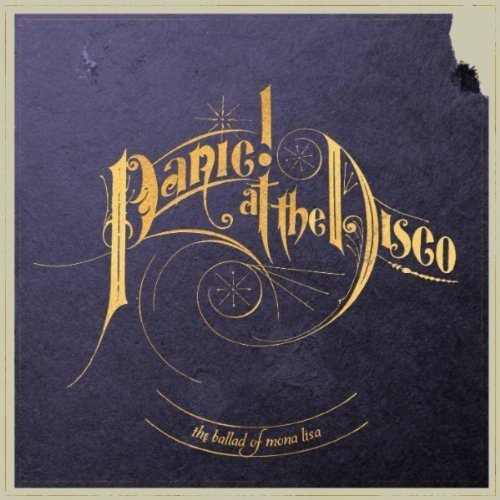


 The Beastie Boys- "Hot Sauce Committee Pt. 2" (Spring 2011)
The Beastie Boys- "Hot Sauce Committee Pt. 2" (Spring 2011)






